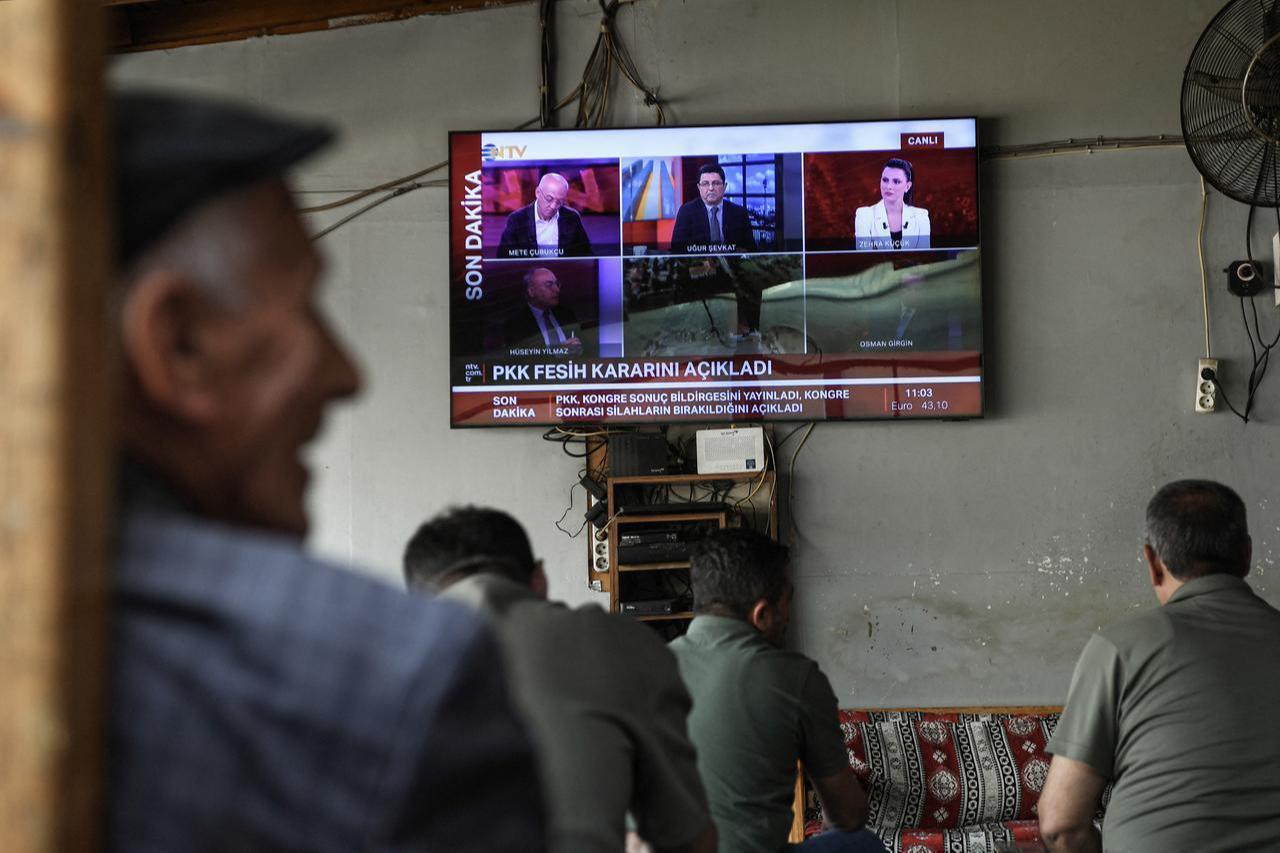
Türkiye, according to some Western indexes, ranks low on press freedom. Yet one of the most striking findings from a recent youth survey shows that young people nevertheless favor state measures against false news, and are skeptical toward foreign-funded media in high proportions.
82 percent of young respondents say the state should have the authority to penalize the spread of false news, with the condition of it being on the individual level, rather than an institution. For a demographic often portrayed as resistant to state control, this level of endorsement shows a finding against the prejudices.
23 Research’s study maps Türkiye’s digital generation shows how deeply young people are embedded in online platforms. The finding also points to a pragmatic view of digital life among younger Turks.
Many seem less concerned with the risks of overregulation and more with the dangers of unchecked misinformation. For a generation that spends hours online every day, fake news is not an abstract political issue but a tangible problem shaping how they perceive society, politics, and even daily choices.
The survey reveals the extent to which social media has become the primary arena for Türkiye’s youth. More than a third of respondents spend over three hours a day on these platforms, and while entertainment tops the list of motivations, news and information come in second. This dual purpose points to the blurred boundaries between entertainment and political participation in the digital sphere, meaning that entertainment and politics often occupy young people's attention, sometimes both at the same time.
Such habits underline the role of social media as both a connective and disruptive force. For younger users, platforms are not just about following global trends or influencers—they are also where they access political debates, local updates, and breaking news. This reliance underscores why disinformation resonates as a daily concern rather than a distant policy debate.

Traditional television is rapidly losing ground. Seventy-two percent of respondents believe TV channels no longer hold the influence they once had, while more than half say misinformation is also present on television. For young audiences accustomed to real-time access and interactivity, passive broadcasting appears increasingly out of step with their information needs.
This erosion of trust is not only generational but structural. The credibility gap between digital and broadcast media is closing, but not because social media is seen as more reliable. Instead, young Turks perceive both as vulnerable to manipulation, leaving them searching for alternative ways to verify what they consume.
Interestingly, 86 percent of participants say they encounter diverse viewpoints on social media. This suggests that online platforms still expose users to multiple perspectives, challenging the idea that young people live only in echo chambers. Yet, in the same breath, 72 percent say social media has a polarizing effect, pointing to the paradox of digital engagement.
Algorithms may broaden access to different voices but also amplify division through framing and constant confrontation. For many young Turks, being online means inhabiting a space that simultaneously informs and fractures, creating an environment where exposure and tension coexist.
Confidence in media freedom remains low across the demographic. Only one in three respondents believes Turkish media is independent, and a strong 72 percent oppose foreign funding for news outlets. Both reflect an enduring skepticism toward ownership structures and editorial agendas that shape coverage in the country.
This lack of trust suggests that the problem of disinformation cannot be separated from broader questions of media governance. For Türkiye’s younger citizens, doubts about bias and external influence compound their concerns about fake news, leaving them with few institutions they see as fully credible.

The endorsement of state authority in policing misinformation is one of the most consequential findings. Eighty-two percent of young people back government penalties, with 68 percent framing it as a protective measure for vulnerable groups. This view suggests that, at least for this generation, the risks of state overreach are outweighed by fears of unregulated digital manipulation.
It also reflects how misinformation is experienced not just as a political challenge but as a social threat. From health-related hoaxes to manipulated political narratives, young Turks appear willing to trade some degree of freedom for stability and protection in the information space.
Despite their reliance on fast-moving feeds, many respondents show caution when handling information. Nearly three-quarters say they read beyond headlines by clicking through to full articles, and 82 percent report checking sources before sharing content. These habits suggest that young Turks are not passive consumers but active participants in filtering the news they encounter.
Still, self-awareness of mistakes is high. More than half admit they may have unknowingly shared false information at some point, while 37 percent say they corrected their mistakes by sharing accurate updates. This mix of caution and fallibility highlights both the scale of the problem and the resilience of youth strategies to manage it.
When it comes to verification, most rely on official sources and quick internet searches. Dedicated fact-checking services, however, have yet to gain traction. Only 7 percent of respondents say they use such platforms regularly, raising questions about their accessibility and relevance to broader audiences.
The limited uptake suggests that while fact-checking organizations play a vital role in Türkiye’s media ecosystem, their reach remains niche. For most young people, verification is a do-it-yourself process, relying on official channels and personal judgment rather than specialized tools.
Beyond mapping attitudes, the survey also points to gaps in the country’s information ecosystem and potential entry points for addressing them. Media literacy is one such area. Updated curricula on schools that integrate examples of how to verify content on social media are seen as a way to strengthen resilience to disinformation at an early stage.
The findings also show that fact-checking platforms present another gap. While official sources and internet searches are widely used, only a small fraction of young people turn to dedicated verification outlets. This limited engagement indicates that fact-checking remains on the margins of mainstream media consumption and would require broader visibility to become an effective counterweight to disinformation to counter the speed of spread of disinformation.
Transparency in sourcing also emerges as a critical theme. Participants highlighted the value of clear attribution in news reporting, while noting that platforms often obscure or omit the origins of information. In parallel, the role of algorithms in shaping exposure to content was flagged as an underexamined driver of polarization.
Türkiye might lead the field by expanding awareness of how algorithms work, alongside encouraging the consumption of diverse sources, and helping to mitigate the narrowing of information environments.